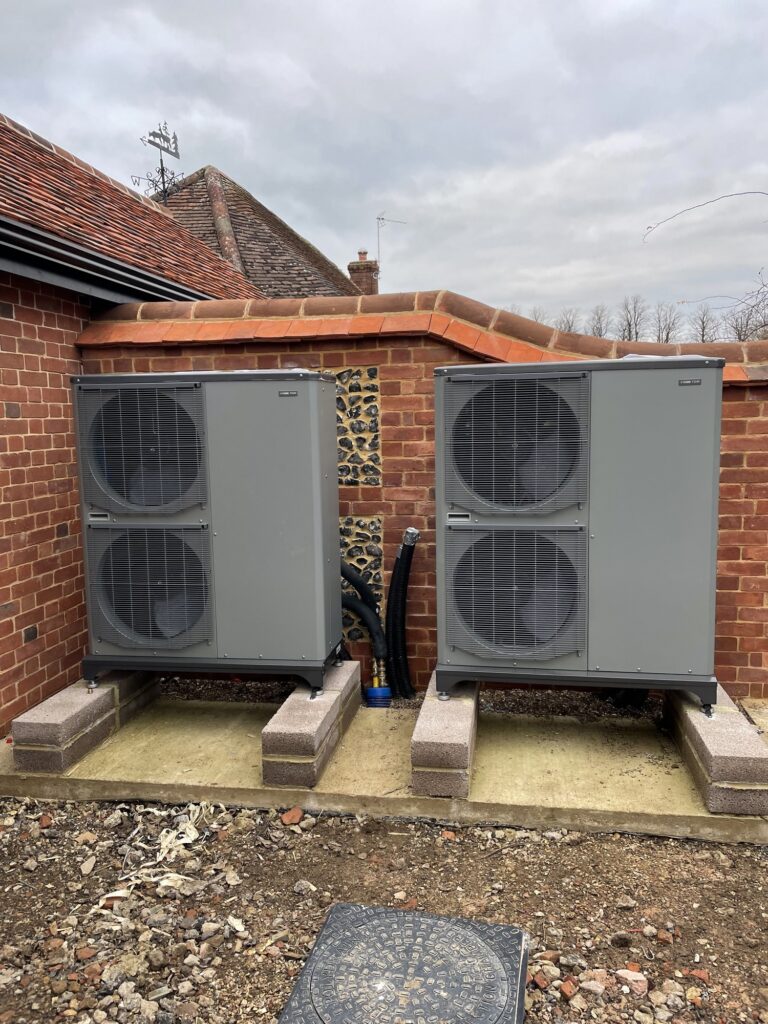We are pleased to work with Nu-Heat, one of the country’s most experienced integrated renewable companies, to ensure that you get the best possible heating system for your home.
By working with Nu-Heat, we are able to install renewable systems to MCS standards so that you can access Government funding, like the Renewable Heat Incentive.
What is a heat pump?
A heat pump is a low carbon heat source. It uses electricity to extract the heat stored in the air or ground, ‘upgrading’ it for your heating and hot water. Aside from being more environmentally friendly and incredibly efficient, many homeowners can also reclaim the cost of installing a heat pump over a seven-year period through the Government’s Renewable Heat Incentive.
The benefits
- An eco-friendly solution and a lower carbon footprint, moving away from fossil fuels.
- Potential to lower fuel bills, especially in properties without access to mains gas. This is because for every unit of electricity a heat pump uses to extract the warmth from the ground or air, it typically outputs around three to four as ‘free’ heat energy.
- Payments on top of savings! An air source heat pump could bring in around £7000 in RHI payments and a ground source around £15,000, covering the initial cost of installation on top of the on-going fuel savings.
How does a heat pump work?
Heat pumps use the refrigeration process to transfer low-temperature energy from the air or ground into higher-temperature energy used for heating and domestic hot water.
Even at outside temperatures as low as -20˚C, a heat pump can supply significantly more energy than it uses – and, with no local CO2 emissions, it helps reduce impact on the environment.
In order to access this free environmental supply an energy input is required. In a well-insulated property, every single kilowatt of electricity used to power the heat pump can provide up to 3 kilowatts of free energy. This ratio is known as the Coefficient of Performance (CoP), in this case the CoP would be 4, meaning the efficiency of the heat pump is 400% – compare this to a boiler at 90% efficiency and the advantage is clear.
Because a heat pump is at its most efficient when producing much lower water temperatures than a traditional boiler, it’s important to pair it with the right heat emitter: ideally underfloor heating or oversized radiators.
Solar thermal
Solar thermal is another renewable option that uses solar panels to provide domestic hot water.
It’s affordable and simple to install, either on the roof of within, and most homes can generate up to 60% of their annual domestic hot water – achieving as much as 100% in the summer – with this type of system. Solar thermal also qualifies for the Renewable Heat Incentive.
Useful resources
- Learn more about the benefits of renewable energy solutions
- Why you should choose an air source heat pump
- Ground source heat pumps explained
- The benefits of solar thermal

